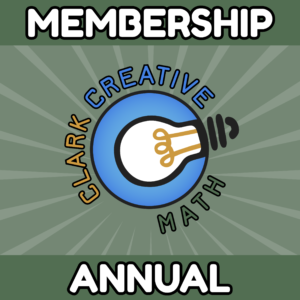A pure real world 21st Century Math Project that can work for a lot of different ages! Real world math projects are one of the most sought after resources. In my opinion, most everything I do is a real world math projects, but when most teachers want a REAL WORLD MATH PROJECT they are looking for something like this. So of course I had to do it, right?
 |
| Keep it as real… as possible. |
Name: The Game of Life
 |
| Alright, money, real stuff, I dig. |
When are we ever going to use this. While some math teachers are perfectly comfortable espousing all of the interdisciplinary connections and are able to articulate which professionals authentically use the topic they are teaching, there are many others who just want to say… uhhhh…. YOU JUST DO!
Keeping it real, the average person isn’t going to run into systems of inequalities very often, but they will certainly need to have mastered those basic operations! Percents and data analysis will also come into play nearly every day, but any time you see, touch, taste or smell money… they are sensing the jedi powers of math.
Apparently it took an economic crash for our country to realize 90% of people have a hard time managing their money. So what do you do? Mandate a Financial Literacy component for every graduate! If you are the lucky math teacher that this got passed to, this might be for you .
 |
| Budget? Is that a candy bar? |
I’ve tried to make the most awesome real world math project ever created. While I’m not sure I reached those heights (it’s the thought that counts, right?) I’ve made something pretty cool. [Hey Reader, go to TPT and download the preview, you can see pretty much everything]. Housing, transportation, food, savings, debts, extras, donations, having babies, getting married, accidents, it’s all here! I’m pretty sure my brother and I played one too many games on our Life board game.
Of course, we don’t jump right into the game first. I have designed three assignments that intend to build the skill necessary to survive in the real world!
Here’s pretty much the breakdown.
In “Bookkeeping Basics” students analyze the spending of different individuals and determine whether or not they have the available funds necessary to purchase an item they would like. “Can I afford this?”
In “Budget Busters” this assignment asks students to analyze the budgets and actual spending of different individuals. Are they spending within their budget? More they can analyze a budget, students will need to determine net pay after calculating their taxes. Students will need to translate between percents, fractions and decimals.
 |
| Can’t you just do some drill and kill?! Answer – “Um never”. |
In “Monthly Payment 101”, this assignment asks students to calculate monthly payments of different loans. Students will also be asked to choose between different loans.
and this leads to the mega project —
The [simulated] Game of Life. This project is multi-faceted, but you can modify (shorten as desired).
Students will choose between 54 career cutouts which starts them off with an annual income, income tax rate, debt and savings account.
With this information students will…
Consolidate their Debt. Students will choose a single loan to pay it back. They need to be careful what they pick because they don’t want to have a monthly payment they can’t afford.
Once they have their loan’s monthly payment information they will…
Complete a Budget. They will calculate their Net Monthly Income and Create a Budget for their spending.
With their budget set, it is time to make…
Choices! They will select a plan for housing, utilities, phone, food, transportation, savings and extras. They need to be sure not to spend too much money. (All data is included).
Once they are done with these tasks, they will put your choices to the test. They will complete SIMULATED YEARS.
You will give students an Update (30 included) which will change information regarding their employment, family changes and unforeseen obstacles!
Students may get married or have children. If they get married, they need to find someone else in the class that also got married and POOF they are now partners on this project. They are married. If for instance, on their next update, they get divorced, they need to split their savings and move on.
Students will then reassess their finances, re-evaluate choices and complete their Year 2 (or 3 or 4 or 5) assignment.


